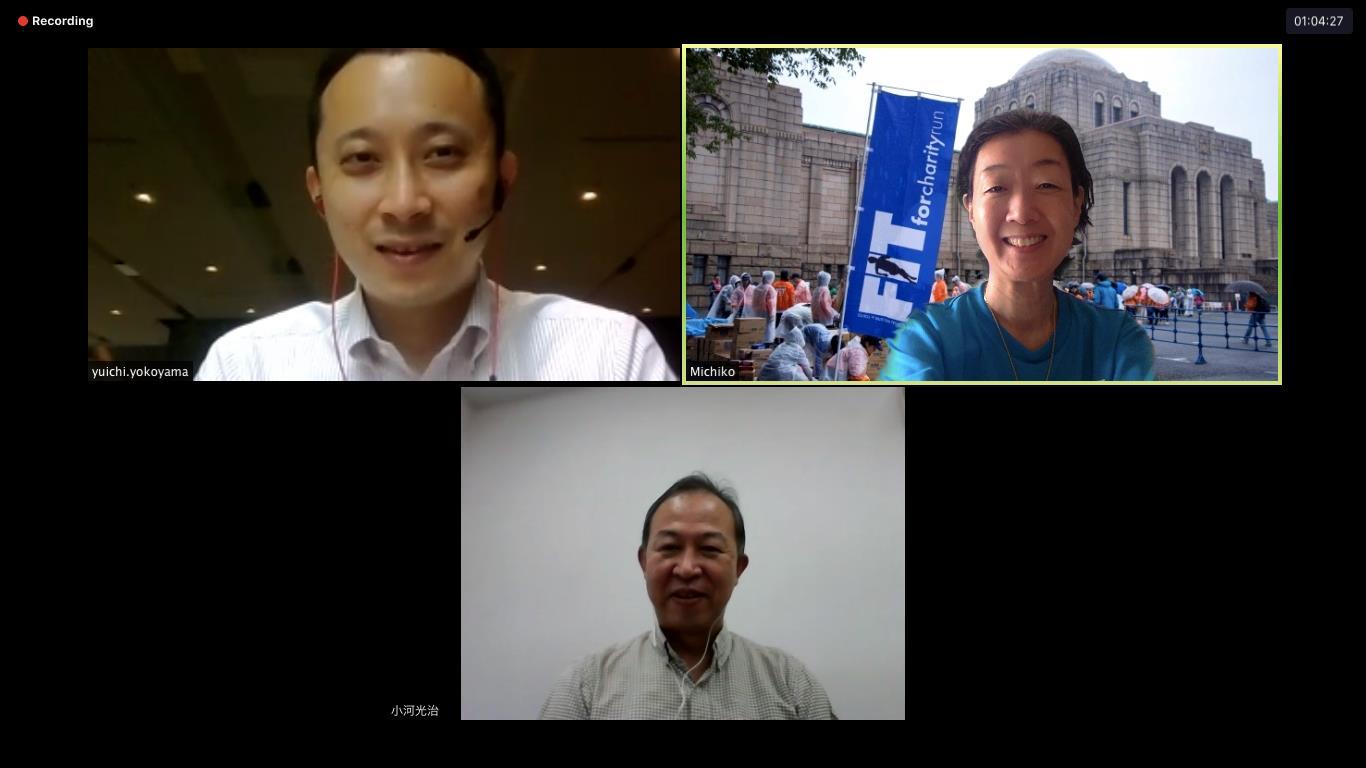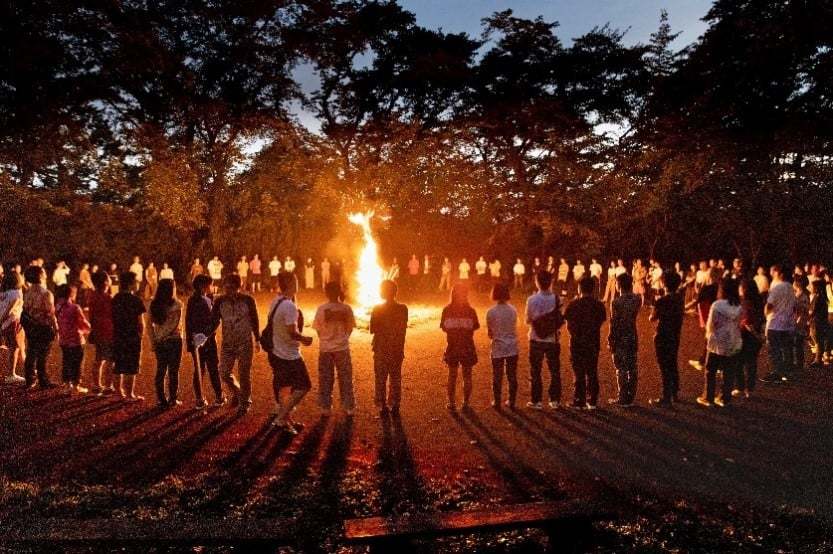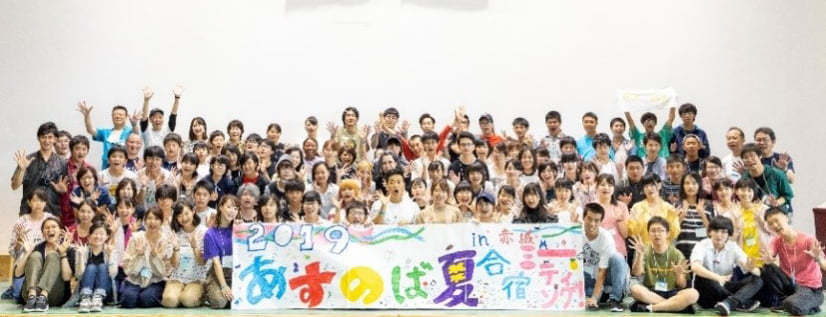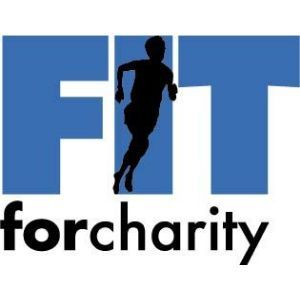Usnova
Usnova, one of our FIT 2019 beneficiary organisation, conducts surveys and advocacy on child poverty, provides interim and direct support, and aims to create an environment where all children can live with hope. We spoke with Koji Ogawa, Representative Director.

FIT: What is your background and how you came about setting up this organization?
Ogawa: I myself lost my father in a traffic accident and grew up in a single-parent household. Luckily, I went on to high school and university on a scholarship and started working for the Ashinaga Foundation. When the government announced for the first time in 2009 that 1 in 7 Japanese children was in poverty, I felt that no matter how big the Ashinaga Foundation grows, it would be difficult to help all the children with a scholarship. In 2013, the Child Poverty Prevention Law was enacted but a law alone would not alleviate the problem of poverty. I thought that I, who had received the institutional benefit of scholarships in the past, had a mission to repay the debt of gratitude to society, so in 2015 I decided to launch the Children's Poverty Prevention Center, Usnova.
FIT: Tell us about some of the rewarding experiences you had since starting Usnova.
Ogawa: The Child Poverty Prevention Law was revised last year, and a survey result by our association was also put into consideration. For example, an income tax deduction for single parents who have never been married has been introduced. We were able to improve the situation in which a single parent who has never been married was treated disadvantageously in the tax system, even though their situation was worse. I thought it would not be easy to set up an organization and contribute to the revision of laws and systems in five years, but we were able to contribute thanks to the support of various people.
FIT: One in seven people is said to be poor, but why doesn't it feel that way?
Ogawa: Unlike in the past, there are fast fashion stores and thrift shops for clothing, and it is difficult to see that people are having trouble earning money when looking at how they dress, which is the characteristic of poverty today. I think even poor families try to adapt themselves to their surroundings because appearance alone can cause bullying and truancy.
One factor behind the high poverty rate is the increase in part-time employment. Not only single parents but also many families with parents have low household income and are in poverty. Despite the poverty rate in Japan being the worst amongst OECD countries, the employment rate of single mothers is high. In other words, they are categorized as the working poor, who are working but not making enough money. If such a condition does not change, fundamental improvement is difficult.
FIT: There seems to be a lot of challenges, but if there is one system that can be changed, which would you choose?
Ogawa: It would be shifting the burden of educational expenses from households to society as a whole. Children in poverty are less likely to choose their own path because of financial constraints. When a child is in the upper grades of elementary school, they understand the economic situation at home and realize that no matter how hard they study, without money, it is difficult for them to receive higher education. In this way, poor families not only have a financial problem with food, clothing, and housing, but also loss in their child's motivation. Hence consideration needs to be given to support the raising of children and education in Japan by the whole society instead of leaving everything to the family. For example, if education is made free, children will have fewer choices to make and will not have to suffer. This is a major challenge, but we want to make it easier for people to raise their children by appealing to the national and local governments as well as political parties.
FIT: Will the new system of free higher education improve these problems?
Ogawa: Compared to the situation where students give up going to high school because they don't have money or go to high school with a lot of debt, this is a big improvement in the system. It has become possible to provide generous benefits to children who wish to go on to higher education, but there is no support at all for children who do not go on to higher education. There are many places where children can play an active role, for example, in agriculture, where there is a serious labor shortage. I think that supporting these children will also help the Japanese economy.
FIT: How is FIT donation being utilised?
Ogawa: We had planned to use it for a four-day training camp for students who face various difficulties during the summer vacation, but it was canceled due to CoVid-19. We would like to hold a training camp next year, but if we can't, we may change it to use for another purpose.
FIT: What are your prospects?
Ogawa: Fundamental institutional improvements are needed to eliminate child poverty. It won't be easy, but I want to create a society where all children can choose a wide range of options without worrying about money.
Covid-19 has caused many to realize the hardships people are facing all over the world, and I hope that more and more people will use their imagination to think about various social issues not just about them but more on a personal level. Our association's English notation is written as "US NOVA". You are not alone but are part of US, we are all together, and this issue that Japan faces is not just about other people's affairs, but about our own affairs.
In the past, many volunteers gathered after the Great Hanshin-Awaji Earthquake, which is said to be the first year of volunteerism, and volunteer activities have taken root in Japan. Looking back after 10 or 20 years from now, I hope we will be able to say, CoVid-19 was a tough time, but it has given courage to these children living in poverty, and created a society in which no one is left behind, a society where every child is being supported.
Usnova
https://www.usnova.org/



